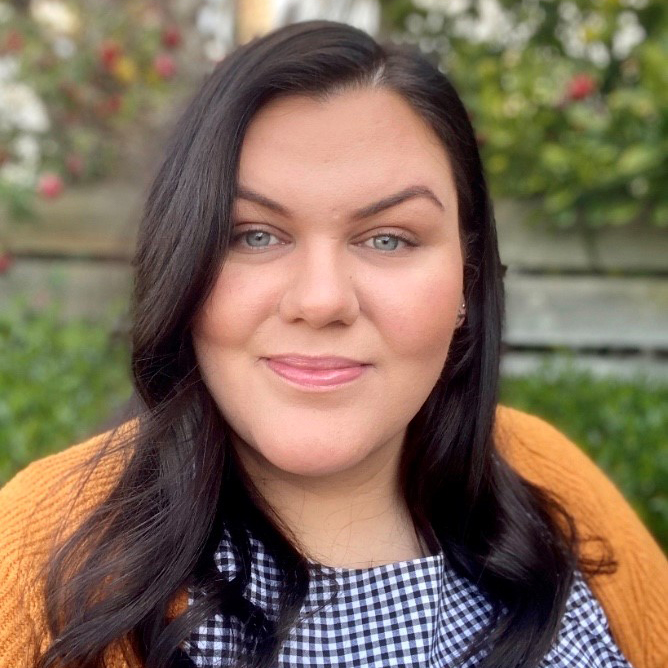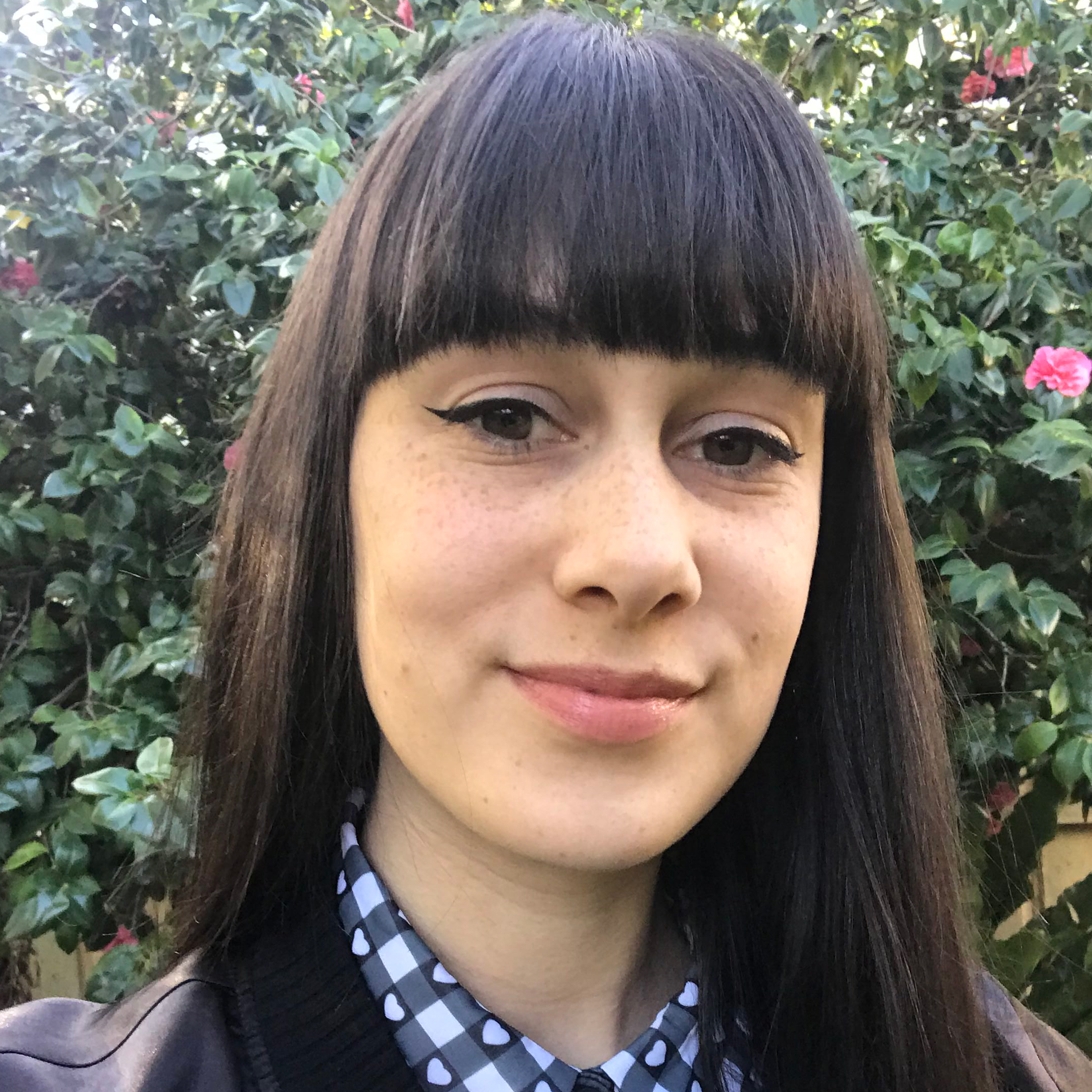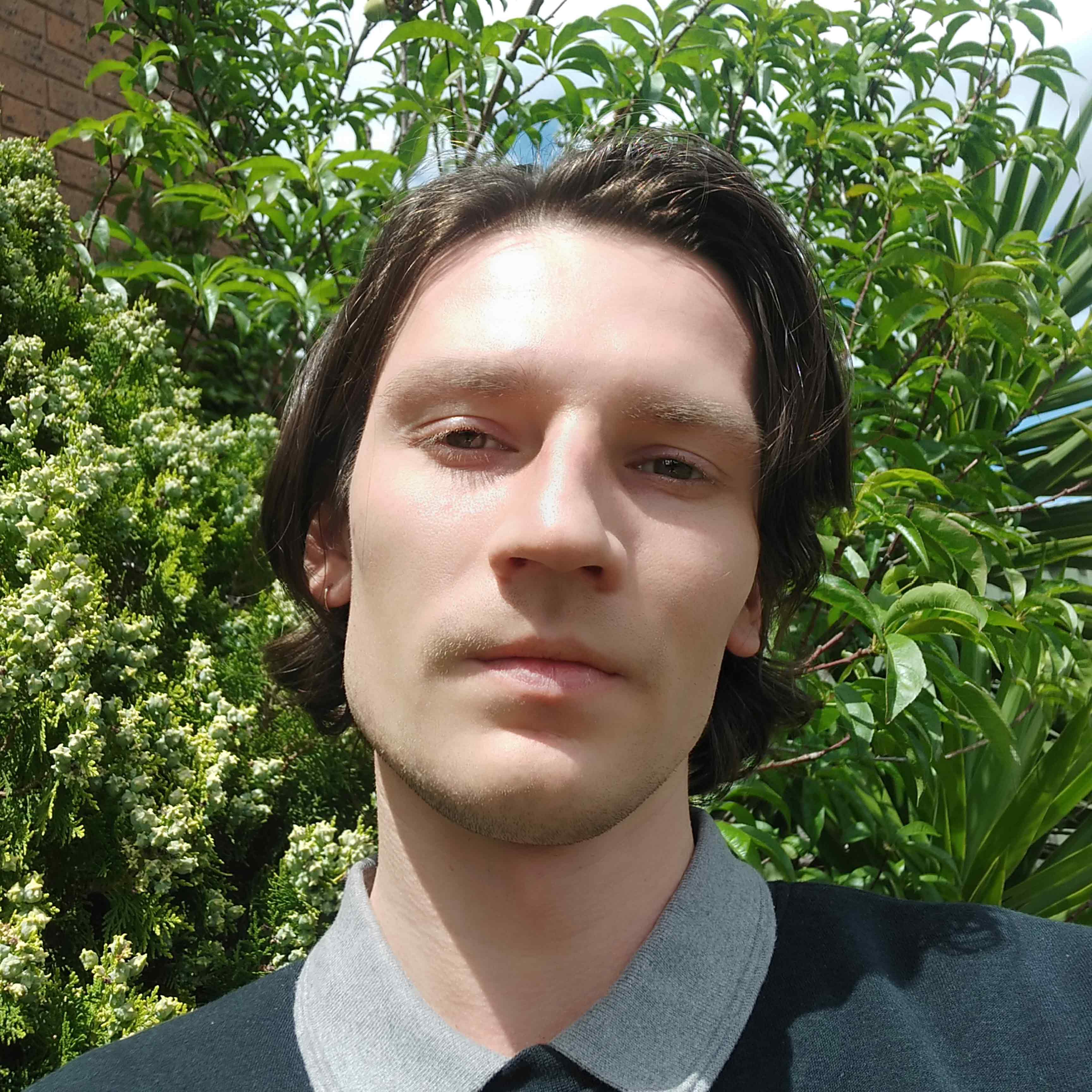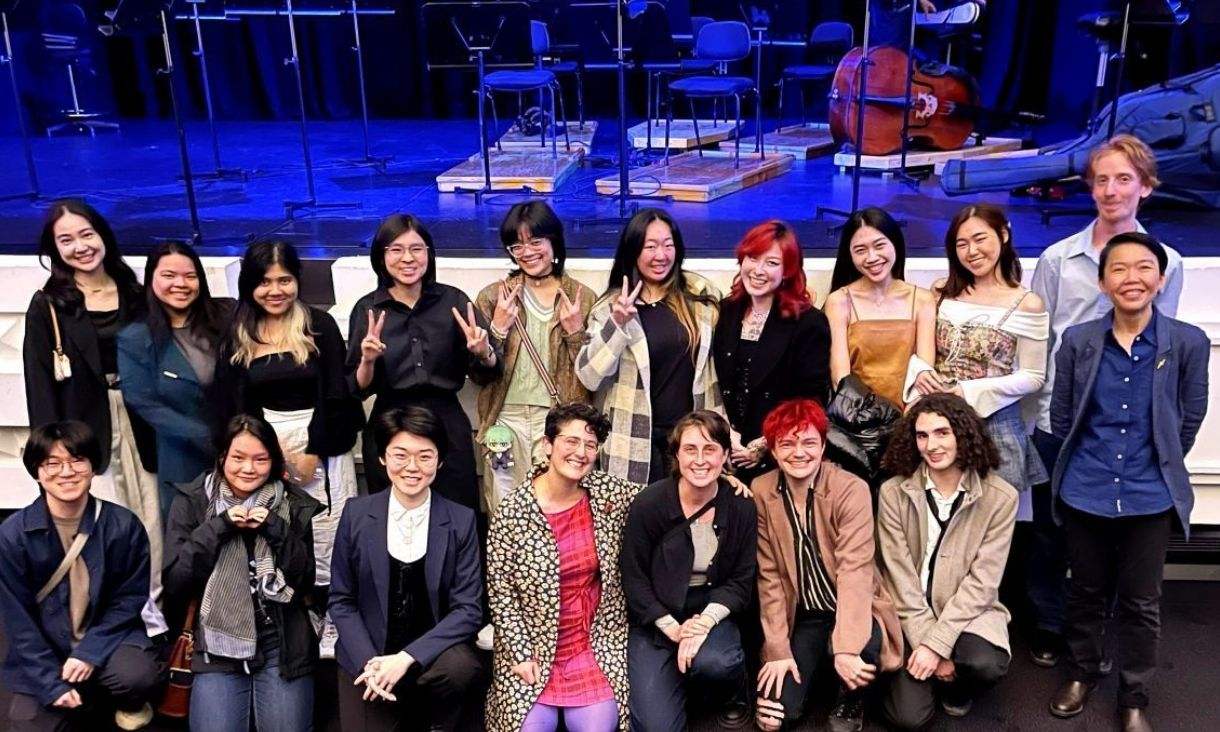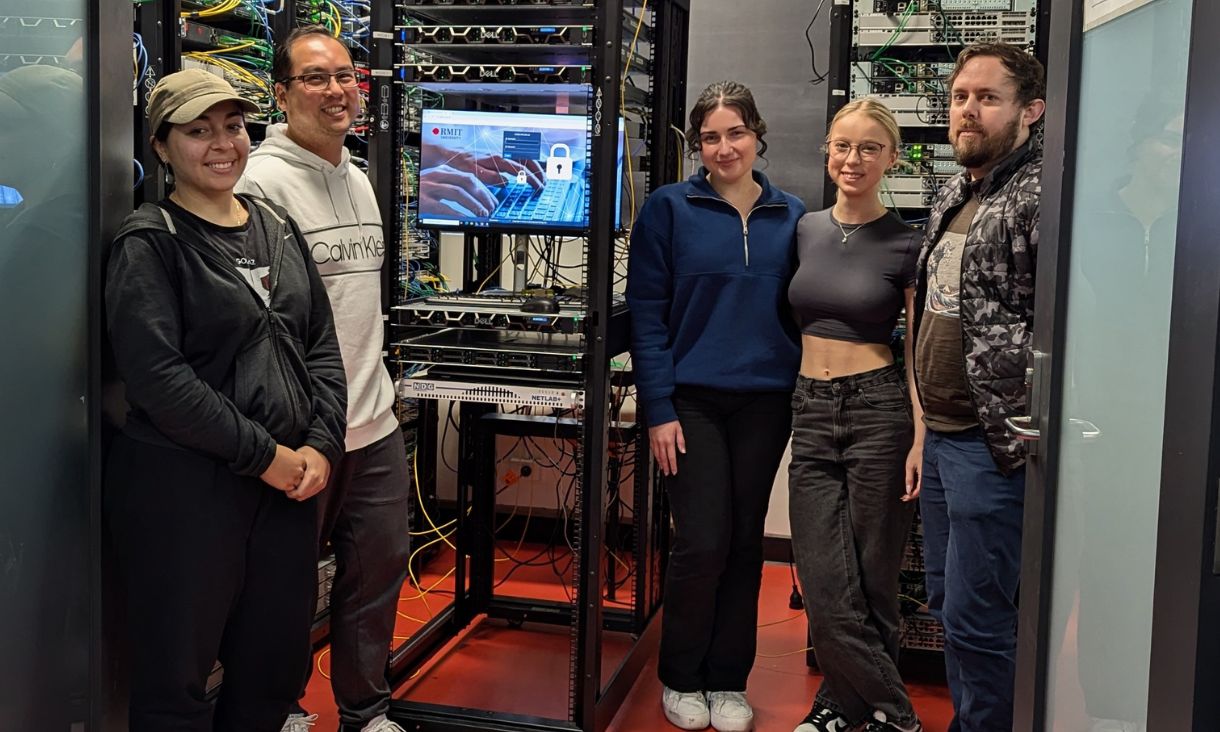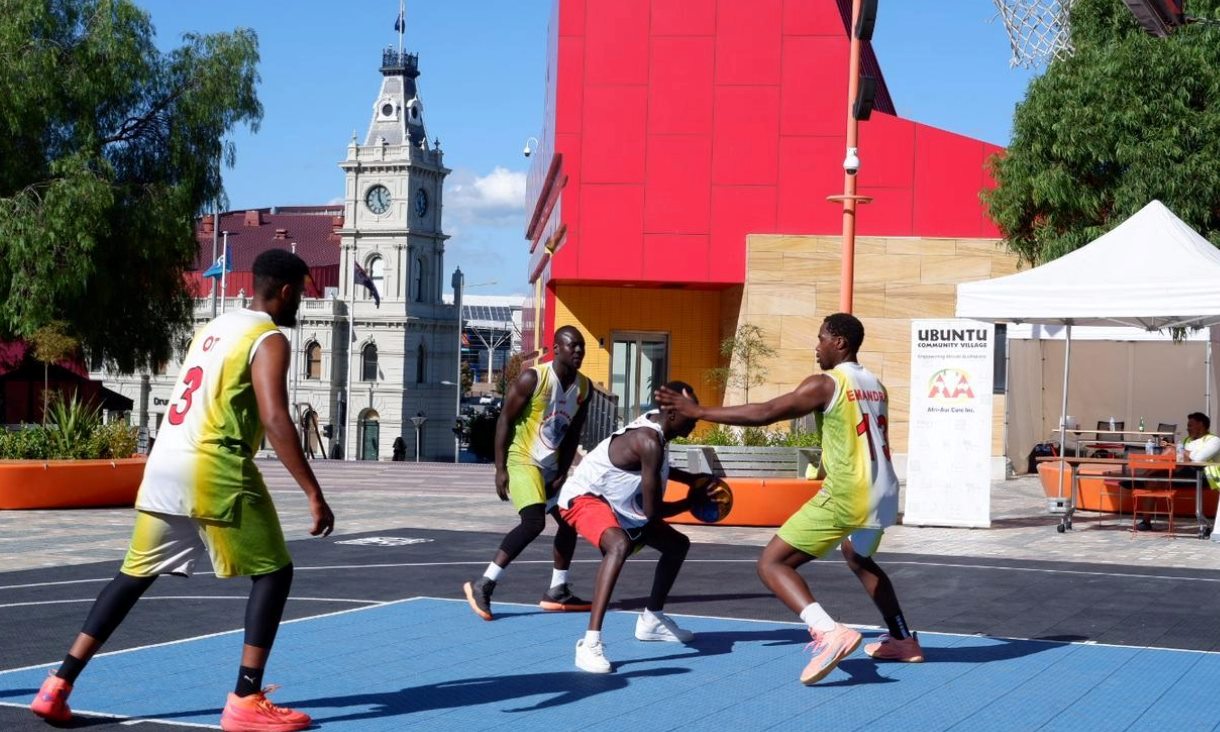First can you tell us a bit about yourself and what drew you to study social work?
Jemma Joyce - Bachelor of Social Science (Psychology) and Bachelor of Social Work (Honours)
“I have been brought up to ‘live a life of use to others’ which has always guided my actions.
"I’m always going to strive towards supporting more progressive change within people’s lives and in the community.”
Dimitri Filianovsky - Bachelor of Social Work (Honours)
“I’ve always had a drive for social change and my interest in refugee and asylum seeker policy motivated me to study social work.
“It’s been a highlight working at FSSI in a research setting and in an organisation that is really connected with the social services, Government and policy and working on projects that have a direct impact on that. And being in a good team has been fantastic.
Kate Hepworth - Bachelor of Social Science (Psychology) and Bachelor of Social Work (Honours).
“I’ve always had a passion for social justice, and it’s engrained in everything I do.
"I was even in the social justice club at school!”
Getting leadership right
What are you looking for in a leader?
Jemma:
“I’m always looking for someone who shares similar values to me. I think that connection is important. To have trust in workers and the people you are leading and trust in yourself.
“I think it’s important to avoid that typical hierarchy where there’s one leader and everyone else is below. You need to value contributions from across the organisation.
“And in an office environment, good leaders are engaging with you, and wanting to know what you are doing. I think that personal connection is very important.
“It’s important to have a strong sense of purpose and a strong sense of self. You must hold true to yourself under pressure and when facing criticism from those above or below you in an organisation.”
Dimitri:
“I think management and people skills are at the core and by that I mean
mediation skills, ability to smooth out conflicts, honesty, transparency and accountability.
“Being supportive and inclusive of everyone in the team is vital as is a commitment to equity, not only equality, in the team based on the work that they do.”
Kate:
“What’s really important for me in a leader is someone who is really open to progression and change. They are not getting locked into saying ‘this is the way we’ve always done it’. I’ve observed this with Micaela Cronin, the Director of FSSI.
“Leaders need to be open to new ideas and different people’s perspectives and values, especially in the human services sector. It’s also about listening to the voices we don’t usually hear and being open to everyone’s perspective despite their job status.
“For example, students coming into an organisation may have different perspectives and I think that’s good to keep inserting into an organisation.”
What leadership styles and behaviours do you admire and respond to?
Jemma:
“A commitment to supporting stability, being direct and straight to the point and clear on what needs to be done.
“At the same time, not being too professionally driven at the expense of the people side of things and being approachable. Finding that sweet spot is good!
“Our Director Micaela at FSSI is just amazing at this.
“We have our team days on Thursdays so in the morning we all get together for a team meeting and in the afternoon, we get together for something fun, whether it’s for a fun activity, general conversation or a quiz. And even though Micaela and the rest of the directing team are busy they ensure to take time out when possible to connect with everyone.”
Dimitri:
“Determination and drive on behalf of the leadership, combined with kindness and consideration for the rest of the team is important to me.
“Also, for the leaders to have continuous development, to avoid having stagnated thinking and feeling that you always know best because everyone is still learning together.”
Kate:
“I appreciate when leaders are open and available to talk to anyone. For example, FSSI is a great organisation for allowing that because it’s smaller in structure so if I have a question for our Director, she’s available despite being busy and gets back to me when she can.
“Drawing on all these different perspectives that you might not always hear when you’re at the top of an organisation is valuable.”
What does ‘good leadership’ mean to you and why is it important?
Jemma:
“As a worker, I always want to be led by someone who encourages everyone to grow, develop and provide that reflective environment - whether that’s providing constructive feedback or supporting workers to reflect on their own work.”
Dimitri:
“A person who can meet and surpass goals while keeping everyone involved and working effectively and cohesively. Supporting everyone to work well and with a good dynamic between workers and management.”
Kate:
“Someone who leads well and guides others with openness.
“Having a trauma informed lens is helpful in our field, especially when we are dealing with some of the worst things other people are going through in their lives.
“So being understanding that we do absorb some of the issues that we experience through our clients and understanding that vicarious trauma is prevalent in the profession.
“A good leader is doing what they can to support staff to manage that well. A leader that knows how to support people through that is important and I’ve observed that at FSSI.”
Has Covid-19 changed your perspective on leadership and what you want and need from your leaders? If so, how?
Jemma:
“I think it is necessary to be understanding and patient within this new environment.
“Everyone has been through a lot, however, at the same time leaders need to support and promote that drive towards completing work.
“It’s finding that sweet spot of still motivating the employees while being understanding of the challenging environment.”
Dimitri:
“On a broader scale, critical thinking from the leaders from a global perspective has been important and understanding what’s going on and why at the macro level, and support and consideration for the public.”
Kate:
“This has changed the way we’ve had to work with other people. Most services and placements are online, and this has required a different approach to leading people and managing time because we’re not physically together and able to physically observe things like the nuances of body language.
“Making time to have those moments of personal connection with the other staff members is so important because it can get overwhelming when you don’t have the usual breaks that let you decompress, like going out for a coffee together.
“This time has reinforced what I think is important for leaders and that is staying connected, managing workload and understanding what’s going on for people when work and home life are now converging for many people.”
What do you want your future leaders to know about you and your peers who are entering the sector?
Jemma:
“Our ability to deal with pressure and uncertainty is now to the next level!
“I think it’s going to be important for future leaders to recognise that as a cohort, we’ve become experts at dealing with pressure, uncertainties, and we’ve demonstrated resilience.”
Dimitri:
“I’d like leaders to understand that for our social work degree we’ve completed 1000 hours of full-time placement work on top of other obligations like paid work, other study including completing a thesis and family commitments.
“The education and work experience that we’ve completed has so much more to it than what might be written on our cover letter or CV. The fact that we’ve made it through this period while juggling other things in life demonstrates resilience.”
Kate:
“Don’t underestimate that students have completed placements during COVID. We’ve acquired unique skills that others won’t have experienced.
“Some students on placement have dealt with clients remotely and this requires different skills. I’m excited about the change that this remote work will have to services and what this will do for accessibility.
“We’ve had to deal with this challenge and shift in the world, but we’ve come out the other end being able to work with people in a way that’s quite novel.
“I’m glad this has allowed people who may not previously have been able to engage with services to do so because they are at home. Some people may feel more comfortable talking to a counsellor at home with a dog in their lap!
“There have been disability activists and others with chronic health issues working hard within this space for many years but it’s great we have really expanded now to a more global use of technology and remote access options.”
What are your hopes for the future?
Jemma:
“I hope to move to the Northern Territory to learn from Indigenous communities to build on my culturally informed practices and perspectives so I can be really supportive. I also aim to work in the family violence sector to support survivors and children.
“If I can positively influence someone’s life, that’s the most rewarding part of the job. It’s a positive win-win situation.”
Dimitri:
“I’m looking forward to being really challenged in the workplace, working full time, earning a salary, leaving the hospitality work that I did on the side while studying and doing professional work.”
Kate:
“Part of the big appeal for me with social work is that you can work across quite a few domains. Social work gives you a lot of skills that you can apply to all sorts of different roles.
“I’m finding the more I’m doing and experiencing different things the more I’m open to pursuing different things and keeping an open mind.
“For example, working with children and young families is exciting to me. I’ve always been passionate about and interested in working in family violence. I’m interested in mental health and the policy space as this guides everything we do as practitioners. My experience working at FSSI has helped solidify that. It felt good working on projects that you know are going to make the sector a better place.”
A word from respected leader, Micaela Cronin, Director Future Social Services Institute
“The social service sector is experiencing transformational growth, at the same time as significant challenges about the quality of the services they provide.
“I think leaders need to be able to adapt and think about new ways to do things, not just rely on past models and ways of thinking.
“Leaders need to be open minded, look to other sectors for successful ways to grow and change, and help build the evidence base about what works - which requires thinking through very carefully what their theory of change is, what are the problems that are trying to tackle, how will their interventions make a difference, and do they meet service user needs and expectations.
“This generation of students are very inspiring. They have energy and optimism for the future, and they are intelligently thinking about how they can make a difference. I’m impressed by their confidence and willingness to listen to feedback and learn - they’re open to new ways of thinking and seeing the world.”
About the social work program at RMIT – Associate Professor Robyn Martin, Associate Dean, Social Work and Human Services.
“The social work program at RMIT emphasises a critical approach, encapsulated in the phrase ‘thinking critically and acting politically.
"RMIT social work students and graduates emphasise and respond to the intersecting factors that inform experiences of family violence (such as poverty, racism, ableism, gendered and age-related discrimination and marginalisation) in teaching and learning. This approach positions RMIT social work graduates as leaders in the social services industry.
“The current social work students on placement at FSSI are involved in cutting edge practice with leaders within the social services industry. In their work in the Family Violence and Housing sectors and within the Innovation Training Pathways, the students are working with different aspects of education, training and applied research and are contributing to transformation of the social service industry.
“They have been exposed to leaders and experts across these sectors, and are developing professional networks, building knowledge and skills and most importantly contributing to change processes.”
Story: Kate Milkins

